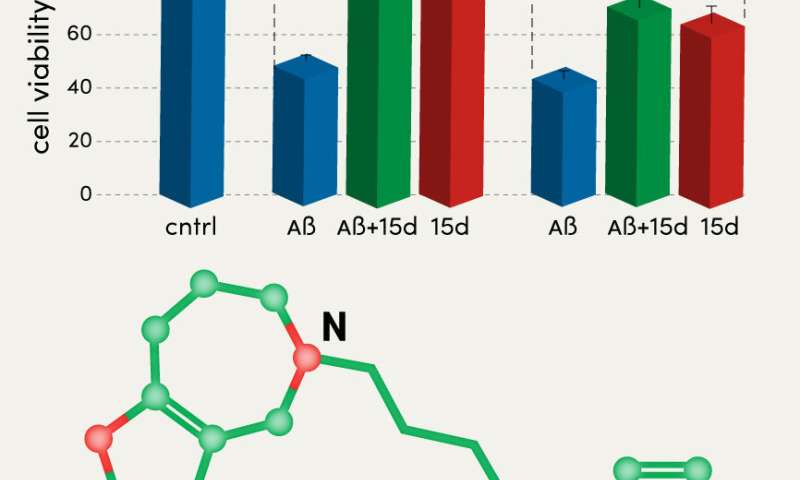
Biochemists from RUDN University (Russia) and the University of Bari (Italy) report a group of compounds that can become a molecular scaffold for new drugs for Alzheimer’s disease. They have demonstrated that derivatives of 1,2,3,4,5,6-hexahydroazepino[4,3-b]indole, or HHAI, are effective inhibitors of acetylcholinesterase and butyrylcholinesterase—enzymes whose increased activity can worsen the condition in this disease. The article is published in the European Journal of Medicinal Chemistry.
According to the World Alzheimer Report 2018, Alzheimer’s disease will affect more than 130 million people by 2050. Patients develop beta-amyloid plaques as the aß peptide aggregates…


























